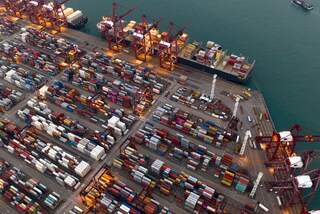
© bellergy/ pixabay
Driving European trade policy – what matters most now?
With its export-oriented economy and its dependence on stable trade relations, it is vital for the German and European industry to actively engage with this changing environment. For the German industry, a comprehensive and resilient trade policy agenda is an important prerequisite for Europe's future prosperity and its position in the world. It directly impacts and benefits the lives of all European citizens.
We are critical of the fact that trade policy played little or no role in President von der Leyen's speech to the European Parliament after her election for a second term. While the “Political Guidelines” offer some insights into the European Union's upcoming trade agenda, we see the need to address other key issues on which the new Trade Commissioner and the Directorate General for Trade will have to focus over the next five years:
- Free trade agreements remain the gold standard of trade policy. It is important to finalize the agreements with Mercosur, Indonesia and Mexico and to negotiate new agreements with like-minded partners without delay.
- We should be open to innovative approaches in trade policy, for example by linking trade policy more closely with development cooperation. Both should serve our interest in promoting sustainable trade with new partners and diversifying our trade relations overall – without creating new barriers.
- BDI continues to advocate an extensive reform of the WTO. We recognize that such a step is currently out of reach, but in the meantime, we recommend using plurilateral mechanisms to maintain the rules-based order. The multilateral, rules-based international trading system needs the WTO at its core and the EU must play an active role in further strengthening this system. This is not easy, because the EU must also decide how to deal with countries that do not adhere to established rules of trade policy.
It is to be welcomed that under a new trade commissioner, the areas of economic security and trade are to be considered together. If “de-risking instead of decoupling” is to work, it must be ensured that market access and the opening of new markets remain at the heart of European trade policy.
These points are set out in more detail in the position paper.



